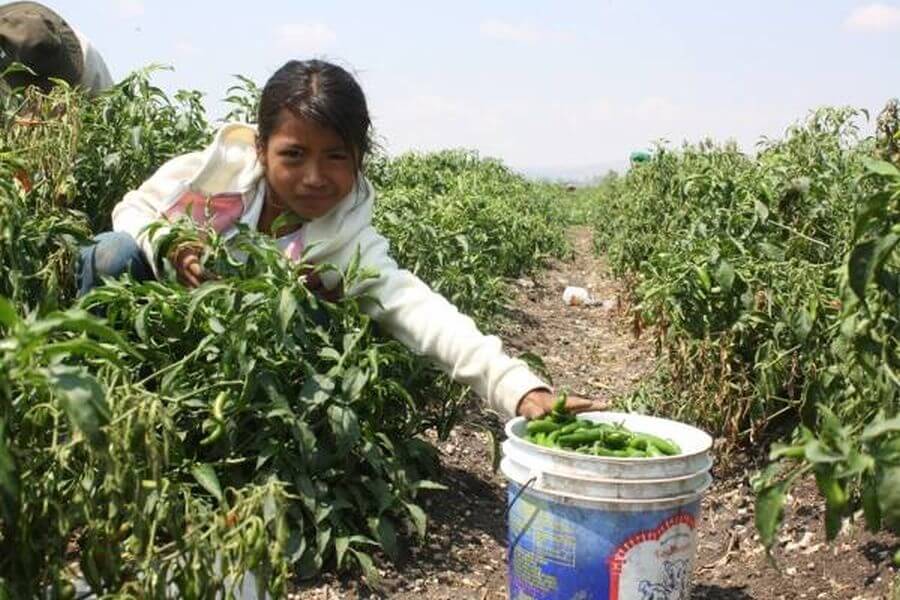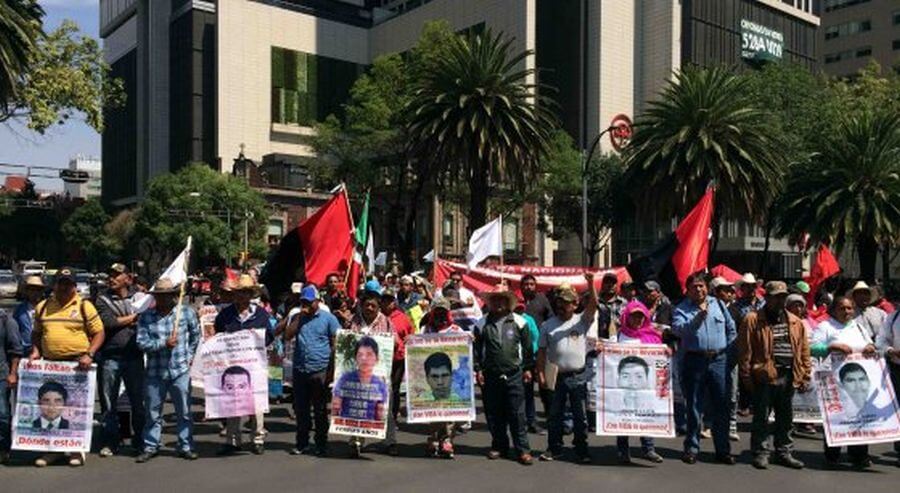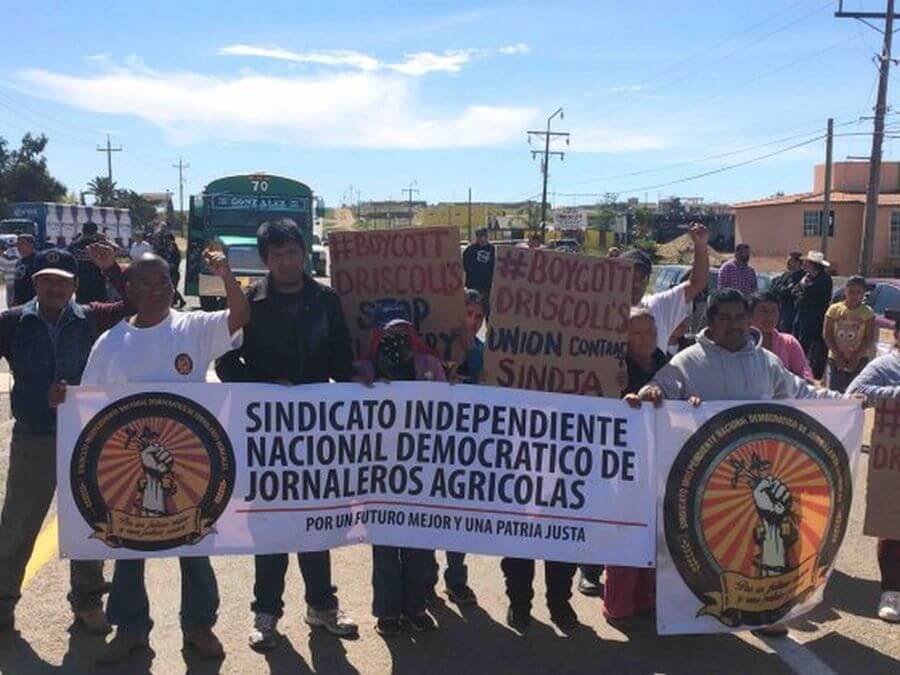x carolina
Last March 4th, the Caravan for a Fair Wage and Decent Life began with a blockade of the Transpeninsular Highway by the day laborers from the fields of the San Quintin Valley. The workers then went on to cover 3,000 kilometers, arriving in Mexico City on March 17th.
Two years ago, the strike of thousands of farm workers brought to light the appalling conditions in which at least 80,000 men, women and children toil as day laborers in Baja California agribusiness. The hours are long, up to 14 hours a day with no rest on the weekends at a deplorable wage, with no vacations, no social security and no decent housing with basic services. Striking workers denounced human rights violations, and especially sexual abuse and harassment of the mainly indigenous women workers by the foremen.
In response to a call sent out by the National Democratic Independent Farm Workers Union (SINDJA) and the Alliance of National, State and Municipal Organizations for Social Justice, this year’s Caravan was organized to protest non-compliance of agreements reached with federal and state government officials in Baja California. The struggle continues for decent wages and benefits, the right to social security and an end to the sexual harassment of women.

The exploitative companies are mainly consortiums like Driscoll’s in the United States. Working together with human rights organizations and territorial defenders in both countries, the day laborers succeeded in launching a widespread boycott against this corporation as a way of pressuring the owners to meet their demands.
As the Caravan made its way through nine states in Mexico, it was joined by teachers of the CNTE, collectives in defense of the water in Mexicali and several different labor and social organizations supporting the farm workers’ struggle.
Ke Huelga Radio reported that the Caravan made a stop in the city of Ensenada to condemn the lack of basic services, such as drinking water, sewerage and highways. Caravan members also denounced the lack of specialized medical attention, especially maternity and pediatric benefits and those related to on-the-job accidents and pollution damages suffered due to the use of agro-chemicals in the field.
In Tijuana, the Caravan stopped at the Chaparral border crossing between the two Californias, where migrant day workers and social organizations from the United States joined Mexican workers in denouncing outrageous labor conditions in both agricultural territories. Furthermore, they decided to resume the global boycott of berries produced by Driscoll’s.
As the Caravan approached Mexicali, it was pursued by police in patrol trucks who pointed at people with long arms, forcing them to get off the buses. The detained workers, however, turned the aggression into a protest, blocking the highway for several hours before they were able to continue on their way.
In a news program of Hijos de la Tierra, it was reported that around noon on March 8th, the travelers met with Mario Luna and the traditional authorities of the Yaqui Tribe in Vicam, Sonora. “The meeting was very moving with the two groups recognizing each other as actors in significant struggles of original peoples, who after 500 years of living under constant siege, are still very much alive and standing up for their rights.” On International Women’s Day, both groups noted the valuable contributions made by women to the struggle.
Mario Luna insisted that “we must set an example for others, not to be leaders or bosses, because our communities are organized from the ground up, by the people, by our troops. If one falls down, another gets up.”
After passing through the states of Sonora, Sinaloa, Nayarit, Jalisco, Michoacán, Querétaro and México state, the Caravan brought its activities to a close in Mexico City on May 17th.

Outside the federal Attorney General’s Office on Reforma Avenue, the farm workers met with the Committee of the Fathers and Mothers of Ayotzinapa to demand that the federal government undertake a real investigation of the events of September 26 and 27 of September, 2015 and punish those responsible for the disappearance of the 43 students.
Other farmer and worker organizations joined in a march to the Anti-Monument of the 43 and then continued on to the rally at the Monument of the Revolution. There, the SINDJA spokesperson underscored the demands raised by the Caravan and proposed the formation of a national union of agricultural day workers. It was also announced that solidarity actions were underway that day in Baja California.
Photos: Ke Huelga Radio, Hijos de la Tierra



